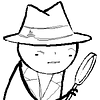Take a photo of a barcode or cover
The question and the premise of the book is how far what a person go to survive and fed his or her family? Even if that mean breaking laws? Those are the moral decision taht the main character of the novel, Harry has ask himself. He does it in order to fed his family by getting illegal things from Cuba to Flordia, even though sometimes he does not succeed. Hemingway taps into the mind and heart of a person who what do this, and tries to explain to the reader the result.
adventurous
challenging
reflective
slow-paced
Plot or Character Driven:
Character
Re-read enroute to Key West... More disjointed and racist than I remembered.
I definitely really liked this book; despite going into it being critical as it is supposedly Hemingway's "worst book," I enjoyed it. It wasn't the best, for sure, but I enjoyed how Hemingway experimented. What could've made it more enjoyable, for me, was for the storytelling to be less erratic. At times I was somewhat confused when it would switch perspectives and characters throughout the novel. However, as the book was initially written to be different short stories, I can deal with it being choppy as a novel since it wasn't intended to flow all together anyway.
medium-paced
Plot or Character Driven:
A mix
Strong character development:
No
Loveable characters:
Yes
Diverse cast of characters:
Complicated
Flaws of characters a main focus:
No
Not my favourite Hemingway, but still a worthy read. The tale of Harry Morgan, our 'have not' protagonist, is pure, unadulterated Hemingway. The story however becomes disjointed when we leave Harry for a large swathe of time and focus on some of 'the haves' populating Key West, a bunch of mostly unsympathetic characters.
The racism and misogyny can also make the read uncomfortable, and I had to keep reminding myself that this was released in 1937. It is certainly a book of its time, with references to prohibition, the depression and the bubbling Cuban revolution.
If you haven't read Hemingway before, I wouldn't recommend starting with this one.
The racism and misogyny can also make the read uncomfortable, and I had to keep reminding myself that this was released in 1937. It is certainly a book of its time, with references to prohibition, the depression and the bubbling Cuban revolution.
If you haven't read Hemingway before, I wouldn't recommend starting with this one.
this book isn't all that bad. it was a weird transition from the last book i read - 'all quiet on the western front' - and i think that initially affected my opinion of the book. but the classic hemingway elements are there: masculinity and heroism, questionable depictions of women, and (of course) booze, and the more i thought about it, the more i respected the characters. there are some nice introspective, stream-of-consciousness narratives.
heard a rumor that benecio del toro is making this into a film, and i hope it remains true to the text (unlike the humphrey bogart version which left the original far behind). interestingly, william faulkner co-wrote the screenplay, and it was lauren bacall's first film at age 19 - she's smokin when she first steps into the scene. anyway.
heard a rumor that benecio del toro is making this into a film, and i hope it remains true to the text (unlike the humphrey bogart version which left the original far behind). interestingly, william faulkner co-wrote the screenplay, and it was lauren bacall's first film at age 19 - she's smokin when she first steps into the scene. anyway.
Hemingway as southern fiction writer. I liked it.
as most say, really good at certain points, but certainly disjointed.



